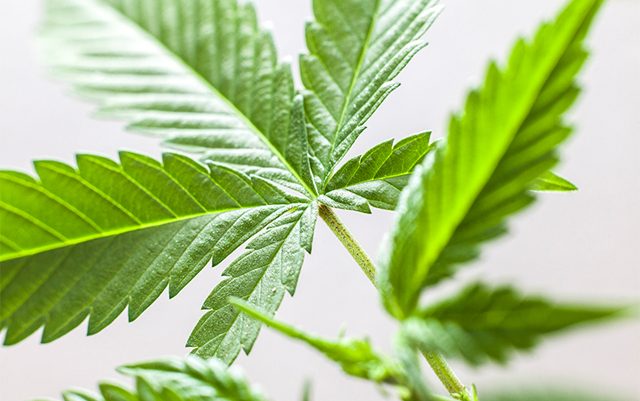For twenty years, the folks at Students for Sensible Drug Policy have been at the forefront of the battle to end the War on Drugs and the destruction it has brought to society in the U.S. and beyond. In fact, SSDP has a presence at 300 schools around the world, which allows students from all walks of life an opportunity to make their voice heard when it comes to drug prohibition.
With marijuana law reform making headway at various levels of government in the U.S., I got a chance to speak with Hannah Procell, an Advocacy Fellow at SSDP, about federal cannabis law reform and more.
“We’re glad to see that justice-centered marijuana reform is becoming a growing priority, but marijuana prohibition should have never begun, so until it is abolished, we won’t be satisfied,” Hannah told The Marijuana Times. “Every day that Congress continues to procrastinate on this issue, the injustice of marijuana prohibition continues. Congress has an overdue obligation to end criminalization for marijuana crimes and embrace the job creation, tax revenue, and economic power created by a legal market.”
Unfortunately, with Congress moving slowly at this point, there is still a long way to go to get to federal legalization. “Elected officials have to know that constituents want the state-federal conflict resolved, and there are two ways to send that message,” Hannah said. “Right now, we should be calling Congress and meeting with staff in local offices to ask them to co-sponsor the MORE Act, which legalizes cannabis and begins to repair the harms of prohibition. Next, we must mobilize in support of reform-oriented candidates and ballot initiatives in 2020 so the 117th session of Congress begins with a mandate to pass the MORE Act or similarly comprehensive legislation.”
Along with all of the other ways SSDP fights marijuana prohibition, they also recently joined the Marijuana Justice Coalition, a group of anti-prohibition organizations that includes the ACLU, Center for American Progress, Center for Law and Social Policy, Drug Policy Alliance, Human Rights Watch, Immigrant Legal Resource Center, NORML and others.
“SSDP has been a part of the Marijuana Justice Coalition since its first meeting in August 2018 when participating organizations began creating a vision of what ideal cannabis legislation would accomplish and how we would get there,” Hannah told us. “While providing consultation to the bill drafters, we identified critical elements of restoring justice, zeroing in on the impacts prohibition has on individuals and communities. Such are the tenets of true reparative justice and marijuana policy reform: criminal justice reform and resentencing, immigrant protection, community reinvestment funds, and an achievable framework for meaningful equity programs. SSDP is proud to stand with the Marijuana Justice Coalition.”
There is still a long way to go to end cannabis prohibition; luckily, we have groups like Students for Sensible Drug Policy leading the fight.







SSDP members can also contact their representatives in Congress about reconstructing the malformed definition with three sensible changes:
1. Replace the racist term “marihuana” with its anglicized homonym “marijuana”.
2. Reveal the long adumbrated, actual meaning of marijuana by clearly describing how marijuana is actually derived from cannabis.
3. Explicitly preserve the legitimate federal prohibitions that control the undesired proliferation of marijuana itself.
Paradoxically, the legitimate prohibitions will restore protections for local cannabis growers, establish sensible restrictions to protect children, and establish sensible rules for gun owners to be in a Well Regulated Militia, thus establishing a perimeter of limited federal prohibitions that surround a secure interior region of legal cannabis uses, with plenty of room for supplemental state level regulations.
Altogether, these changes will carefully deschedule cannabis plants, thereby restoring the rights of States and citizens to control cannabis in conformance with the 2nd, 9th, 10th, and 14th Amendments, regardless of the Scheduled status of marijuana itself. Consider this reconstructed definition:
(16) The term “marijuana” means all parts of the smoke produced by the combustion of the plant Cannabis sativa L., which is, as are the viable seeds of such plant, prohibited to be grown by or sold by any publicly traded corporation or subsidiary company, and such smoke is prohibited to be inhaled by any child or by any person bearing any firearm, as is the intake of any part or any product of such plant containing more than 0.3% THC by weight unless prescribed to such child by an authorized medical practitioner.
After the definition is reconstructed, then the reparations can commence, such as determining whether the adulterated medical value that marijuana actually derives from cannabis should also be descheduled, or whether that “other substance” should merely be rescheduled.